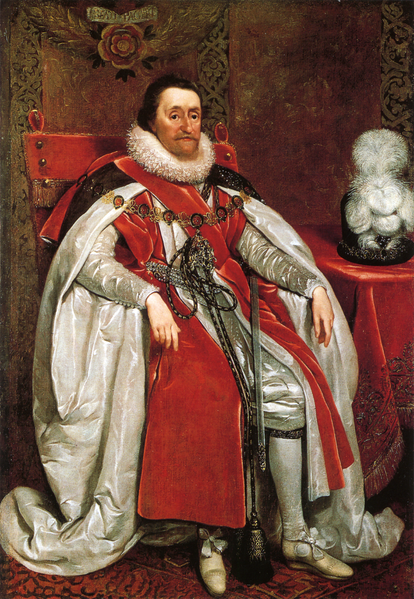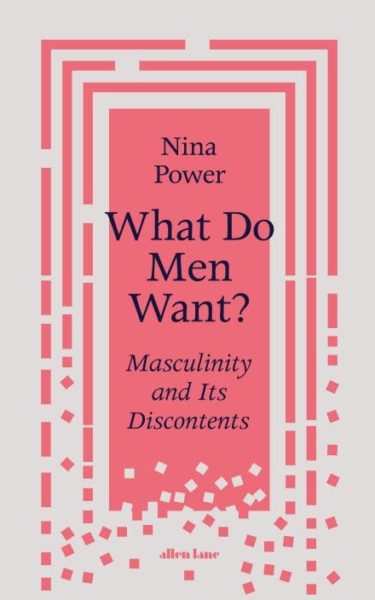Like many a kiddy growing up in the 1960s, the release of a new James Bond film was a thrilling event. My cohort were too young to know about sex proper but the saucy suggestiveness of the Sean Connery films was the nearest we got to it. Once, a rumour went around our school that there was a kissing stand-in man employed on Bond films in order to get the lighting right rather than keep bothering the star with snogging various starlets; the careers officer became quite exasperated with the 16-year-old school-leavers he dealt with that year.
Julie Burchill, “How James Bond became the prisoner of woke”, Spiked, 2021-10-14.
January 25, 2022
QotD: James Bond’s stand-in
January 24, 2022
David Starkey – The Churchills episode 3
Whitehall Moll History Clips
Published 29 May 2019How did Winston Churchill draw on the lessons of his ancestor John Churchill to fight World War II? The Duke of Marlborough’s influence is apparent as Dr David Starkey explains
“Men and woman exist”, opens What Do Men Want?, “Occasionally, we even like each other”
Jarryd Bartle reviews What Do Men Want? by Nina Power:
“Most men are, like most women, a mixture of good and bad, but they are not, as a rule, irredeemable,” Power notes.
Indeed, if there is ever to be a reconciliation between men and women, it may require considering the interests, needs and desires of good men, rather than a laser focus on the bad.
What then, do men want?
When Power asked her male friends this incredibly leading question, the responses ranged from “To be left alone” to “Pussy” to “Beer”. However, the real answer seems to be: something to do.
Power writes, “It is hard to imagine how the role [of men] today could be any more evacuated of meaning or status.”
The old-fashioned role of the Patriarch has been dead for at least one full generation now, and we haven’t really found an adequate replacement. The result is that men are adrift in a state of nihilism. In pop culture men seem to play the role of the “horny jester” to the self-serious goals of feminine social change. But men aren’t just interested in sex and frivolity; they also want a life of meaning.
The consequences of this listlessness are all too evident. Men are vastly overrepresented in statistics on suicide, unemployment, drug overdoses and crime.
Most men aren’t violent, but they are far more violent than women. Women are sometimes the target of this violence, but far more often men take out their pent-up aggression and sadism on other men. Often, we are told to blame these pathologies on “toxic masculinity” — that men need to be liberated from their preferences and to embrace the feminine ideals of tenderness, openness and sociability.
This solution sees sex difference as an irrelevancy, merely a reified founding myth of hegemonic masculinity, perfectly capable of tinkering. For Power, this approach is exceedingly cruel, failing to accept men as embodied creatures with a distinct way of experiencing the world:
To describe masculinity as “toxic” is to suggest that not only have men been poisoned, but that they are extending their poison to the rest of society.
This recent call to feminise men also didn’t occur in a vacuum.
There has been a significant decline in the needs for physical labour in Western countries since the turn of the century. Our increasingly service-oriented, tech-mediated economy requires very different temperaments, often drawing on the feminine virtues of empathic communication.
For Power, these broader structural changes have meant “certain kinds of behaviour come to be rewarded over others”.
Whilst we can’t turn back the clock, this re-evaluation of the role of men in society should be done in a manner which respects the dignity of men as different from woman.
Parker-Hale .303-.22 Conversion Kits for the Enfield, Lewis, and Vickers
Forgotten Weapons
Published 14 Sep 2021http://www.patreon.com/ForgottenWeapons
https://www.floatplane.com/channel/Fo…
Cool Forgotten Weapons merch! http://shop.forgottenweapons.com
In July of 1918, the British military formally adopted a Parker-Hale system of adapting .303-caliber arms to .22 rimfire for short range training. The system involved lining standard barrels with .22 caliber blanks that were machined with full size .303 chambers. Special cartridge inserts were used which had the external dimensions of .303 cartridges, but held .22LR cartridges inside. This allowed the weapon to use the same feeding system as it normally would, and to duplicate the handling and trigger mechanism of a standard .303 caliber gun while only firing a small rimfire cartridge.
Parker-Hale built kits of this type for the Lee Enfield rifle, the Lewis LMG, and the Vickers HMG, and all were used by the British military. In the Lewis and Vickers, there was no accommodation made to actually cycle the guns; this sort of .22 practice drill was done by manually cycling the actions after each shot. Still, it was a good way to practice basic drill (loading, unloading, etc) as well as basic marksmanship without the noise of full power cartridges and without the need for a full-power-rated backstop.
The system for the Lee Enfield was replaced in 1920 (after only about 2 years of use) with the No2 MkIV* rifle, a dedicated .22 conversion of an SMLE. Parker-Hale kept the system in their commercial catalog into the 1930s, however.
Contact:
Forgotten Weapons
6281 N. Oracle 36270
Tucson, AZ 85740
QotD: The Punk-Prog War of 1977
Back in the Silver Jubilee year, 1977, The Sex Pistols were at war with progressive rock. A rather asymmetrical war, for sure, in which only one side probably knew themselves to be engaged, but still. The music press love a feud — what would Britpop have been without the North/South Divide?
The Sex Pistols were angry young men — sois-dissant situationists who hated the dreamy Jung men with their Hipgnosis gatefold album art, their endless concept albums and “song-cycles”, and their am-dram dressing-up box shenanigans. The progs were pretentious and effete and disdained, not only for being able to read music, but for littering their lyrics with symbols from the collective unconscious. It all came from doing too much prep — they were the decadent ancien regime to punk’s snotty sans culottes.
Whether there was any truth to all this didn’t matter much. As mediated by their friends at the NME, the punks despised prog — a genre they regarded as anything but progressive. And Genesis were among the original sinners. True, it was a Pink Floyd t-shirt onto which Johnny Rotten had scrawled “I hate”, an alteration which amounted to all the wit he needed back then to get hired by Malcolm McLaren. But Genesis were the Druidic Lords of the iddly-diddly — the eye-wash and the whimsy that the bin-bag and safety-pin boys and girls found so contemptible.
The Pistols drew as much of their energy from the desire to make overfed rock dinosaurs like Genesis extinct, as they did from making music themselves. They wanted to see the carcasses of these privately educated fops littering the impact crater of punk rock, exposed for the cold blooded, lumbering, vegetative grotesques that they were. The nimble-witted likes of Rotten and Co. pogoed jubilantly on the wreckage of shattered Melotrons and twin-necked Gibsons and their long-overdue graves. Their hour — 1977, year zero — had surely arrived.
Simon Evans, “Rocker Crocked. Pistol Shot.”, Quillette, 2021-10-04.
January 23, 2022
Hitler’s Interference is losing the war – WW2 – 178 – January 22, 1943
World War Two
Published 22 Jan 2022This is a rough week for the Germans — their trapped garrison at Velikie Luki is liquidated, and their trapped army at Stalingrad is … well, it isn’t going well for them. In fact, it isn’t going well for the Axis anywhere this week, being pushed back or retreating in New Guinea, the Caucasus, North Africa, and on Guadalcanal. Berlin is even bombed this week as well.
(more…)
The oddity of the bookselling business
Unlike so many other retail operations, book stores have a different sales cycle because they can generally return unsold books (in good condition) to the publisher for a full refund. This means that 30% or more of the books on the shelf at Christmas will be shipped back to the publisher early in the new year, only to appear again on the discount shelves a year or two later for a fraction of the original retail price (and often in rather worse shape for all the additional handling). In the latest SHuSH newsletter, Kennethy Whyte calls this the worst problem in book publishing:

“Indigo Books and Music” by Open Grid Scheduler / Grid Engine is licensed under CC0 1.0
Book publishing doesn’t work like most other retail businesses. If I were in the ugly sweater business, I’d sell 500 ugly sweaters to Saks at $200-a-piece. Saks pays me 500x$200=$100,000, marks the ugly sweaters up to $500, and lays them out on tidy glass shelves under track lighting. Whatever is left after the Christmas season is marked down to half price on crowded sales racks. If Saks still has some ugly sweaters in January, it will ship them to the outlet store where they’re offered at still greater discounts.
What happens to them if they don’t sell at the outlet doesn’t interest me because I’ve got my $100,000. If Saks ordered far too many ugly sweaters, that’s Saks’ problem.
In the book world, I sell 1,000 copies of a book to a retail chain like Barnes & Indigo for $15-a-piece, half the retail price. Barnes & Indigo pays me 1,000x$15=$15,000 and maybe puts some of the books on a front table, or maybe buries them on a bottom shelf in the darkest corner of the store. I might sell a two hundred, four hundred, or six hundred copies.
Let’s be generous and say 600 sell at Barnes & Indigo through the autumn and over the holidays. Come January, the store doesn’t put the remaining stock on sale: it packs up the unsold 400 and ships them back to me for a full refund. The 400 returns, or at least those of them that aren’t crumpled or coffee-stained, go back into the warehouse, which charges me fees to process the returns and more fees to store them. Sometime later, I get a notice of the returns and regret that extra glass of wine I ordered at dinner the night I thought I sold Barnes & Indigo $15,000 worth of books when, in fact, I only sold $9,000 worth of books, perhaps leaving me under-water on that particular title. I also regret boasting of the $15,000 sale to the author, who probably did some royalty math in his head and thought he was getting 40% more than he’ll actually receive.
Returns at publishing houses run somewhere between 25% and 30% annually, across all titles. That’s despite Amazon with its ruthlessly efficient algorithms seldom buying many more copies than it needs, and despite ebooks and audiobooks (which amount to a quarter of sales for many publishers) having almost zero returns.
Millions of books are returned to publishers at this time of year. Sales are slower in January and February, so bookstores hurriedly return all their remaining holiday-season stock and whatever else hasn’t moved to keep themselves in cash. Some of the returns go back into storage. Eventually, most are remaindered, or pulped, or buried. It’s a colossal waste of paper and ink, a headache in terms of shipping/handling/accounting, and dispiriting as heck. You might think you had a great year, hit all your sales targets, exceeded them, even, and then in about the third week of January begins the drip drip drip of returns, and it continues steadily through March. That’s if you’re lucky and it’s drips, not waves. And while the returns are concentrated in the first quarter, your books are returnable year-round, so even a pleasant summer afternoon can be ruined by the unexpected arrival of a pallet of unwanted stock.
The Abandoned Hill With Two Members Of Parliament
Tom Scott
Published 6 Jul 2020Old Sarum, in Wiltshire, is a now-desolate hillfort run by English Heritage. But it was once one of the most important sites in southern England: so important that it had two members of Parliament. Then, it became a “rotten borough”: and a warning about power.
Thanks to English Heritage: more information and how to visit: https://www.english-heritage.org.uk/v…
Research and script assistance from Jess Jewell
Drone camera by Jamie Bellinger
Edited by Michelle Martin: https://twitter.com/mrsmmartin
Audio mix by Graham Haerther: https://haerther.netFilmed safely, following all local and national guidance: https://www.tomscott.com/safe/
SOURCES:
Corfield, P. (2000). Power and the professions in Britain 1700-1850. London: Routledge.Dodsworth, W. (1814). An historical description of the cathedral church of Salisbury: including an account of the monuments, chiefly extracted from Gough’s “Sepulchral Monuments,” and other authentic documents: also, biographical memoirs of the Bishops of Salisbury, from the earliest period by W. Dodsworth, verger of the Cathedral
English Heritage’s own research page: https://www.english-heritage.org.uk/v…
http://www.historyhome.co.uk/c-eight/…
I’m at https://tomscott.com
on Twitter at https://twitter.com/tomscott
and on Instagram as tomscottgo
QotD: The British governments of the 1930s
It follows that British democracy is less of a fraud than it sometimes appears. A foreign observer sees only the huge inequality of wealth, the unfair electoral system, the governing-class control over the Press, the radio and education, and concludes that democracy is simply a polite name for dictatorship. But this ignores the considerable agreement that does unfortunately exist between the leaders and the led. However much one may hate to admit it, it is almost certain that between 1931 and 1940 the National Government represented the will of the mass of the people. It tolerated slums, unemployment and a cowardly foreign policy. Yes, but so did public opinion. It was a stagnant period, and its natural leaders were mediocrities.
In spite of the campaigns of a few thousand left-wingers, it is fairly certain that the bulk of the English people were behind Chamberlain’s foreign policy. More, it is fairly certain that the same struggle was going on in Chamberlain’s mind as in the minds of ordinary people. His opponents professed to see in him a dark and wily schemer, plotting to sell England to Hitler, but it is far likelier that he was merely a stupid old man doing his best according to his very dim lights. It is difficult otherwise to explain the contradictions of his policy, his failure to grasp any of the courses that were open to him. Like the mass of the people, he did not want to pay the price either of peace or of war. And public opinion was behind him all the while, in policies that were completely incompatible with one another. It was behind him when he went to Munich, when he tried to come to an understanding with Russia, when he gave the guarantee to Poland, when he honoured it, and when he prosecuted the war half-heartedly. Only when the results of his policy became apparent did it turn against him; which is to say that it turned against its own lethargy of the past seven years. Thereupon the people picked a leader nearer to their mood, Churchill, who was at any rate able to grasp that wars are not won without fighting. Later, perhaps, they will pick another leader who can grasp that only Socialist nations can fight effectively.
George Orwell, “The Lion And The Unicorn: Socialism and the English Genius”, 1941-02-19.
January 22, 2022
Belisarius: The General & The Eunuch
Epic History TV
Published 21 Jan 2022Download Fishing Clash for FREE and play today! https://fishingclash.onelink.me/dkOM/…
Big thanks to Legendarian for Total War: Attila gameplay footage, check out his YouTube channel here: https://www.youtube.com/channel/UCOI2…
Big thanks also to our series consultant Professor David Parnell of Indiana University Northwest, who you can follow on Twitter here: https://twitter.com/byzantineprof
Total War: Attila gameplay footage used with kind permission of Creative Assembly – buy the game here: https://geni.us/qDreR
Support Epic History TV on Patreon from $1 per video, and get perks including ad-free early access & votes on future topics https://www.patreon.com/EpicHistoryTV
🎨 Original artwork by Miłek Jakubiec https://www.artstation.com/milek
📚 Recommended reading (as an Amazon Associate I earn from qualifying purchases):
📖 Procopius, History of the Wars https://geni.us/L3Pgc
📖 The Wars of Justinian by Michael Whitby https://geni.us/Xxrd3
📖 Rome Resurgent by Peter Heather https://geni.us/ZFoU1
📖 The Armies of Ancient Persia: the Sassanians by Kaveh Farrokh https://geni.us/jMQo3z
📖 Late Roman Cavalryman AD 236–565 (Osprey) by Simon MacDowall https://geni.us/XMGl👕 Buy EHTV t-shirts, hoodies, mugs and stickers here! teespring.com/en-GB/stores/epic-histo…
🎶 Music from Filmstro: https://filmstro.com/?ref=7765
Get 20% off an annual license with this exclusive code:EPICHISTORYTV_ANN#EpicHistoryTV #RomanEmpire #EasternRomanEmpire #Justinian #Belisarius #ByzantineEmpire #Romans #Ostrogoths
James I and his experiment with “personal rule”
In the latest Age of Invention newsletter, Anton Howes explains why King James I grew frustrated in his dealings with Parliament and decided to avoid calling that body into session and ruling the kingdom directly:

King James I (of England) and VI (of Scotland)
Portrait by Daniel Myrtens, 1621 from the National Portrait Gallery via Wikimedia Commons.
By the end of 1610, James’s disillusionment with the House of Commons was complete — it was, he said, after six years of fruitlessly wrangling for parliamentary taxes, like a “House of Hell”.
So, despite failing to reach a permanent financial settlement, James decided to try to rule without it. His debts were huge, and his deficit substantial. But after the failure of 1610 he would do everything he could to never have to summon a Parliament again. Although he couldn’t actually afford it, he decided to try ruling as an absolutist monarch anyway — to embark on “personal rule”.
This extraordinary decision, to be an absolutist ruler without adequate financial support, would have dramatic consequences for England’s foreign policy, and perhaps on the whole balance of Europe too. James had already tried to reduce the costs of war when he came to the throne in 1603, by immediately concluding a peace with the vast Spanish Empire. Yet peace now became a necessity — if he couldn’t even plug the deficit during peacetime, he could not possibly pay for a war. Recognising this, Spain intervened freely in the affairs of the Protestant German states, confident that England would not be able to come to their aid.
To make matters worse, James’s financial woes made him especially susceptible to foreign influence. A poor king could be bought. Some of the smaller but wealthier European dynasties began to offer James large sums for his children’s hands in marriage. In 1611, the duke of Savoy offered a vast dowry of £210,000 for his daughter to marry James’s eldest son and heir, Prince Henry. The notoriously wealthy grand duke of Tuscany even put in a bid for £300,000. France then offered £240,000 — not as high, but it had the greater status as a kingdom. Any of these amounts would have plugged the deficit for a few years, even if they were nowhere near to eliminating James’s debt. Yet Henry died in 1612 at the age of eighteen, before any match was agreed, and James’s new heir Charles was much younger and sickly. There was now no rush, so the bidding war ceased. Indeed, by 1616 Charles had given England’s rivals yet another way to influence its king. The Spanish Hapsburgs dangled the prospect of a gigantic dowry of £600,000, but dragged their feet in negotiations, keeping James focused for as long as they could on trying to keep them sweet.
In the meantime, with Henry’s death denying him an immediate windfall, James in 1613 turned [to] Ireland. The Irish Parliament had not been summoned for over a quarter of a century, but it could be a way to reduce the costs of the occupation of Ireland and even raise some funds. The Parliament was initially a disaster. James had flagrantly gerrymandered a Protestant majority by chartering dozens of new towns, particularly in the English plantations in Ulster. Each new town was a borough constituency able to choose its own MPs, and James could even select their initial members — especially in cases where the towns were actually only tiny villages. In protest, the Catholic MPs refused to even recognise the new borough MPs, so each side elected their own Speaker. The Catholic Speaker was only forced out of the chair when the Protestant Speaker was hoisted onto his lap. Nonetheless, although James was legally entitled to create as many new boroughs as he liked, he soon compromised and in 1615 the Irish Parliament ended up voting him some cash.
But the delays forced James’s hand, and in 1614 he briefly suspended his foray into personal rule by summoning the English Parliament again. He needn’t have bothered. Having embarked on personal rule, James had doubled down on legally dubious ways of raising cash, like imposing new customs duties without parliamentary approval — measures that had already been deeply unpopular with MPs in 1610. This time, the Parliament lasted just two months and two days before James dissolved it in a rage — the House of Hell had proved even more impudent than before. One of the veteran opposition leaders, Sir Edwin Sandys, went so far as to explicitly compare James’s impositions on trade to tyranny, before reminding the Commons that tyrants often met a bloody end. When the Parliament was dissolved, the king had MPs’ notes on impositions burned, and a few of the ringleaders were even briefly imprisoned. But with the dissolution of Parliament, which had not voted him any cash, he was still none the richer.
World War Zero – The Russo Japanese War
The Great War
Published 21 Jan 2022Get the Smartest Bundle in Streaming: https://smartbundle.com/thegreatwarsb
The Russo-Japanese War is nicknamed World War Zero – it was a clash between two world powers that foreshadowed war on an industrial scale as seen just 10 years later again. Gigantic land battles like the Battle of Mukden showed the true cost in manpower and materiel when modern armies clashed and the naval side of the war showed the strategic importance of modern navies.
» SUPPORT THE CHANNEL
Patreon: https://www.patreon.com/thegreatwar» THANKS TO OUR CO-PRODUCERS
John Ozment, James Darcangelo, Jacob Carter Landt, Thomas Brendan, Kurt Gillies, Scott Deederly, John Belland, Adam Smith, Taylor Allen, Rustem Sharipov, Christoph Wolf, Simen Røste, Marcus Bondura, Ramon Rijkhoek, Theodore Patrick Shannon, Philip Schoffman, Avi Woolf,» BIBLIOGRAPHY
Akiyama Saneyuki, Gundan (Tokyo: Jitsugyō no Nihonsha, 1917)Atsuo Yokoyama; Toshikatsu Nishikawa & Ichō Konsōshiamu, Heishitachi ga mita Nichi-Ro sensō, (Tokyo: Yūzankaku, 2012)
Corbett, Julian S., Maritime Operations in the Russo-Japanese War, 1904-1905, Volume I, (Annapolis, MD: Naval Institute Press, 2015)
Corbett, Julian S., Maritime Operations in the Russo-Japanese War, 1904-1905, Volume II, (Annapolis, MD: Naval Institute Press, 2015)
Деникин А. И. Путь русского офицера. (Нью-Йорк: Изд. им. А. Чехова, 1953)
Forczyk, Robert, Russian Battleship vs Japanese Battleship: Yellow Sea 1904-05, (Oxford: Osprey Publishing Ltd, 2009)
Hamby, Joel E, “Striking the Balance: Strategy and Force in the Russo-Japanese War” Armed Forces & Society, Vol. 30, No. 3 (2004)
Hosokawa Gentarō, Byōinsen Kōsai Maru kenbunroku (Tokyo: Hakubunkan Shinsha, 1993)
Ivanov, A & Jowett P, The Russo-Japanese War 1904-05, (Oxford: Osprey Publishing Ltd, 2004)
Jacob, Frank, The Russo-Japanese War and its Shaping of the Twentieth Century, (London: Routledge, 2017)
Jukes, Geoffrey, The Russo-Japanese War 1904-1905, (Oxford: Osprey Publishing Ltd, 2014)
Kowner, Rotem (ed), Rethinking the Russo-Japanese War, 1904-5, Volume 1: Centennial Perspectives, (Folkestone: Global Oriental, 2007)
Lynch, George & Palmer, Frederick, In Many Wars By Many War Correspondnets, (Tokyo: Tokyo Printing Co. 1904)
Mozawa Yusaku, Aru hohei no Nichi-Ro Sensō jūgun nikki (Tokyo: Sōshisha, 2005)
Murakami Hyōe, Konoe Rentai ki (Tokyo: Akita Shoten, 1967)
Paine, S. C. M., The Japanese Empire: Grand Strategy from the Meiji Restoration to the Pacific War, (Cambridge: Cambridge University Press, 2017)
Steinberg, John W; Meaning, Bruce W; Schimmelpennick van der Oye, David; Wolff, David & Yokote, Shinji (eds.), The Russo-Japanese War in Global Perspective: World War Zero, (Leiden: Brill, 2005)
Stille, Mark, The Imperial Japanese Navy of the Russo-Japanese War, (Oxford: Osprey Publishing Ltd, 2016)
Takagi Suiu, Jinsei hachimenkan (Tokyo: Teikoku Kyōiku Kenkyūkai, 1927)
van Dijk, Kees, Pacific Strife: The Great Powers and Their Political and Economic Rivalries in Asia and the Western Pacific, 1870-1914, (Amsterdam: Amsterdam University Press, 2015)
Warner, Denis & Warner, Peggy, The Tide at Sunrise: A History of the Russo-Japanese War 1904-1905, (London: Angus & Robertson, 1974)
»CREDITS
Presented by: Jesse Alexander
Written by: Jesse Alexander
Director: Toni Steller & Florian Wittig
Director of Photography: Toni Steller
Sound: Toni Steller
Editing: Jose Gamez
Motion Design: Philipp Appelt
Mixing, Mastering & Sound Design: http://above-zero.com
Research by: Jesse Alexander
Fact checking: Florian Wittig
Channel Design: Yves ThimianContains licensed material by getty images
All rights reserved – Real Time History GmbH 2022
“China’s statistics remain in the hands of officials who carefully do everything possible to make sure China’s image remains unblemished”
I’ve been a disbeliever in official Chinese statistics for many years — one of the first repeat topics on the blog in 2004 was the unreliable nature of Chinese government statistics on economic growth. As a result, I find it very easy to believe that the Chinese statistics on deaths due to the Wuhan Coronavirus pandemic are unreliable, as John Horvat explains:
As the latest wave of COVID cases surges in the West, all is quiet in the East. It has always been quiet. Millions have died from the coronavirus epidemic as it sweeps the world. However, few consider it strange that the nation where the virus first appeared amid an entirely unprotected public of 1.3 billion people should record a mere 4,636 fatalities over the past three years.
China’s statistics remain in the hands of officials who carefully do everything possible to make sure China’s image remains unblemished. They claim that low numbers are due to the communist nation’s brutal “zero tolerance” policies. China is presented as a model for the West.
Some voices are appearing that dispute this claim. One expert says the fatality figures are likely closer to 1.7 million. This figure would put China in the same camp as the rest of the world. It would also point to the failure of the world’s strictest lockdown and explain the recent shutdowns of whole cities and regions due to the virus, which supposedly kills no one in China.
[…]
Communist parties have always used statistics as a tool and weapon to advance their agenda. Officials feel free to change the numbers to reflect well upon the state, which controls everything. Truth is whatever furthers the fortunes of the party. If statistics must be changed as a result, there is no problem. Hence the notorious unreliability of communist statistics.
The problem is complicated by anxious officials who must report good news to party leaders or face the consequences of their failures, including death. Zero tolerance numbers may be statistically impossible and even absurd, but most officials prefer their survival over inconvenient truths.
Also disturbing is the complicity of Western media that repeat the cooked numbers of communist regimes. Few dare to question impossible figures or “follow the science” when leftist prestige is involved. During the long Cold War, the West presented the Soviet Union as the second-largest economy. When the Berlin Wall fell, the actual size of the economy was found to be significantly less.
Even in a centrally planned socialist state, incentives matter. In the west, failing to meet expected standards may get you fired (unless you work for the government), but in authoritarian states like China it can get you shot or exiled to a remote labour camp for years or decades. The top statisticians know that the numbers they work on are … massaged … at every stage even before they are aggregated for regional or national reporting, but there is literally no point in telling the truth and there is much to be gained by “scenario-ing them rosily” because your bosses will only accept good news regardless of reality.
1842 Retreat From Kabul
The History Guy: History Deserves to Be Remembered
Published 22 Sep 2021On January 13, 1842, a single man on horseback approached the British garrison at Jalalabad, where soldiers were waiting for a retreating army of several thousand. Exhausted, the man had part of his skull shaved off by a sword and his horse was so exhausted that it would soon perish. As he was brought into the walls of the city the lone man was asked where the rest of the army was. “I am the army,” he replied. Thus ended a disastrous retreat from Kabul, where a British force of some 4,500 soldiers and thousands of civilians was almost entirely destroyed.
This is original content based on research by The History Guy. Images in the Public Domain are carefully selected and provide illustration. As very few images of the actual event are available in the Public Domain, images of similar objects and events are used for illustration.
You can purchase the bow tie worn in this episode at The Tie Bar:
https://www.thetiebar.com/?utm_campai…All events are portrayed in historical context and for educational purposes. No images or content are primarily intended to shock and disgust. Those who do not learn from history are doomed to repeat it. Non censuram.
Find The History Guy at:
Patreon: https://www.patreon.com/TheHistoryGuy
Please send suggestions for future episodes: Suggestions@TheHistoryGuy.netThe History Guy: History Deserves to Be Remembered is the place to find short snippets of forgotten history from five to fifteen minutes long. If you like history too, this is the channel for you.
Awesome The History Guy merchandise is available at:
https://teespring.com/stores/the-hist…Script by JCG
#history #thehistoryguy #Afghanistan












